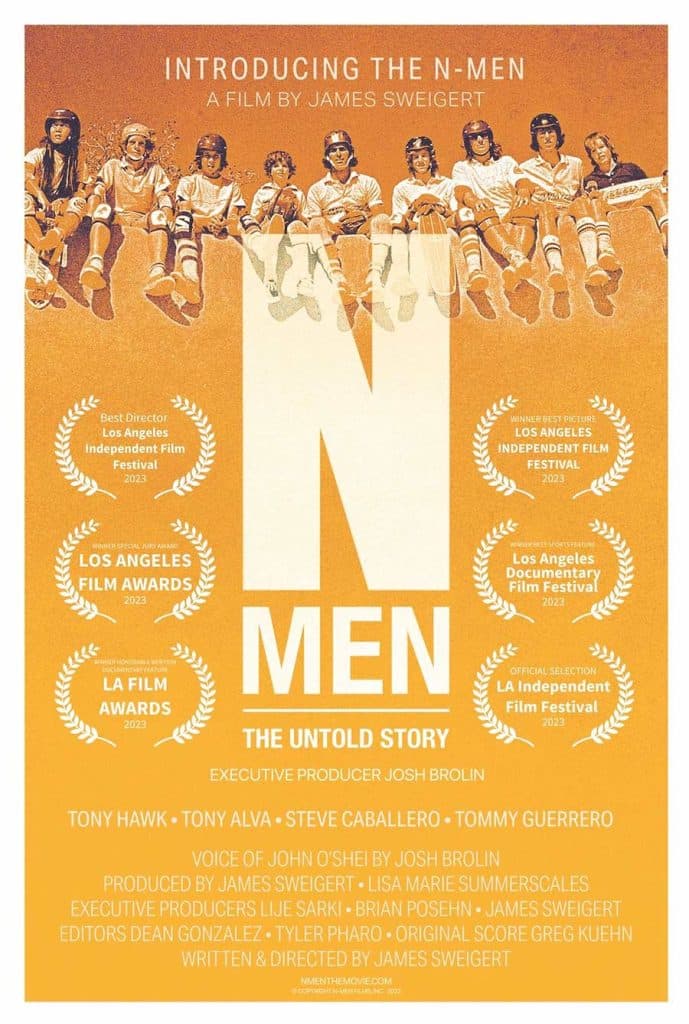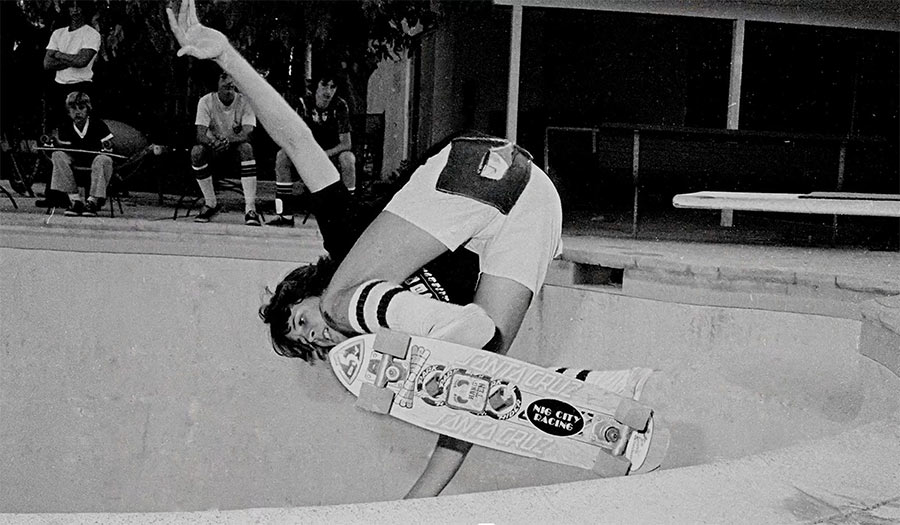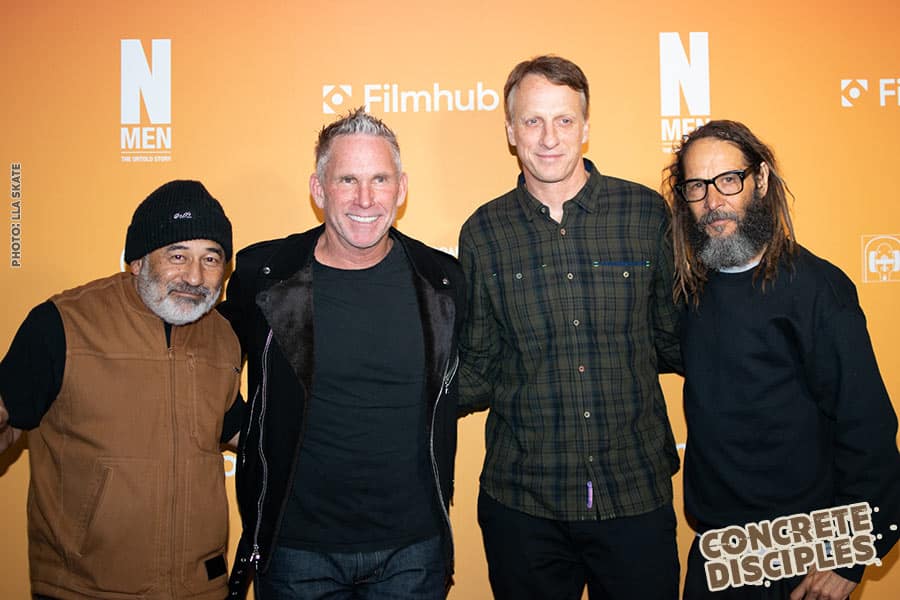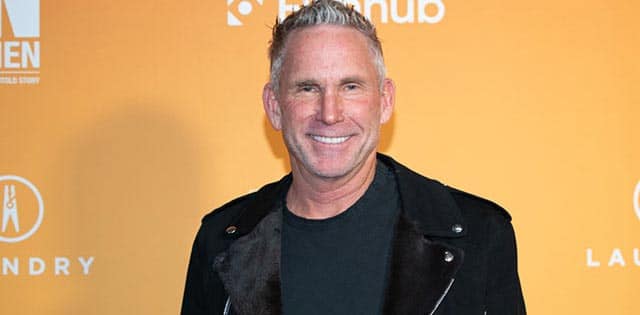James Sweigert – Director of N-Men: The Untold Story

Let me start off with the big overriding question is what was your original plan when you decided to go for it?
Well, the original plan was to share the chronology of and the history of the N-Men from1975 up until the amazing stuff that I found them doing in 2005, which was Don Bostick running the Soul Bowl Contest down at the U.S open in Huntington Beach.
You know, that’s what I thought the story was going to be and I thought that was enough for a story of this miscreant group of skaters that met under the freeway in Sacramento and ended up going on to have this global impact on the world of skateboarding.
Don and his wife (Daniel) were at that time, still continuing to run World Cup Skateboarding which they’re still doing today 15 plus years later. So that was the first thing, look what happened to this group of guys I grew up with. They went on to have this amazing impact on skateboarding globally as Don was doing contest all over the world.

And that was the start of it.
But many, many years of filming and events were unfolding while I was filming. It allowed me to expand on the story to be much more interesting than just the history of a group of skaters, from Sacramento. It allowed me to share the process of making the story where we discovered that certain member who had been lost. They thought he was dead. It allowed us to find the photographer who had all of those photographs that I was able to show in the film. Without him I wouldn’t even have a documentary. Then, the other subsequent events that you got to watch in the movie unfolded.
As a result of that, I got to do kind of a second story of the intimate relationship between the two co-founders of the N-Men, John O’Shea and Doug Jones, and how their relationship evolved over the span of 50 years and bringing that current. That was a very interesting and compelling. component to it. Because it was also very emotional, so that was the second thread that I was able to share.
So you picked that one up on the fly, right, that one wasn’t the original?
Yeah, that was not part of the plan. Because, remember, when I started filming, John would only talk to me on the phone, he wasn’t even sure he wanted to be a part of the process, right? Because they were still doing illegal stuff and skating underground spots as you know. I actually had approach to him in 2005 about doing a documentary, that was four years after Dogtown at Z-boys came out, and I wanted to make a movie about the N-Men, but John said no, he wasn’t ready for it. He said to me because they were still doing stuff that was forbidden and illegal and so he wasn’t ready for that story to be told.
But when I reapproached him, in 2011, he finally gave me his blessing to tell the story. Only because Randy Katen had vouched for me and said, look, this guy’s gonna do us a solid here. And he’ll honor the integrity of the N-Men and keep it authentic, which I’d like to think I did.
I hadn’t planned for the third component too. It was a component that exists in a few documentaries that I really love. One of the documentaries, by the title, Paul Williams: Still Alive. It is directed and made by Stephen Kessler, this amazing director. He made a movie about him, trying to get Paul Williams to agree to let him make a documentary about him and it’s a great documentary. So Stephen Kessler is actually a part of the process of making the documentary in the documentary and I liked that. It was transparent. I liked hearing the story about how he made his film.
Nobody knew who the N-Men were in the in the world outside of Northern California or the Pro Skaters! And so, at the beginning you know I inserted myself only to explain who I am and why I’m telling this story and then you know by the end of the movie I’m no longer a part of it, but these events that unfolded in real time while we were filming.
I was able to bring myself into the conversation to explain what was occurring and who these people were as we had these amazing discoveries along the way. So it’s a little bit about the story of telling the story. So those three different storylines I had to kind of.. I call it, braid together.
My editor that helped me finish the film, Tyler Pharo, was incredible and he helped us figure this out, just how do we piece these three independent stories together. We were able to kind of jump around through time. From then to now from then to now and then you know through the interviews and then get the validation from these amazing professional skateboarders to really give credit to this crew that was otherwise unknown outside of Northern California.
How long did you expect it to take?
I did not have any expectations. The one thing I did know is that I wanted to make the film myself and I did not want to bring in other producers or outside money that would dilute the authenticity of the story, because skaters can see through that bullshit. And so, what I wanted to do was keep it raw and really represent who the N-Men are. It’s a very raw crew of men and women and children. And I wanted to keep it right and I knew that I had to just have autonomy over the project as to not let it you know, again get watered down.
So I didn’t even think about it. I knew it was going to be a nights and weekends thing. And I knew that I was going to be working hard to pay for it all myself. I figured probably a couple of years, okay? And then, I figured five years, and then things in the story kept unfolding, right? And that’s what kept me filming. I was like, wow, this other thing happened. I need to go capture that now and so that’s what kind of strung it along to be an 11 year process of production and post-production.
Even when we started editing, I was still filming. That very dramatic scene at the end of the film, with that twist, was filmed after we had started cutting. And so, finally I had to make the decision. okay, I need to work with the material that I have because I’m not getting any younger and I was getting a lot poorer. I needed to figure out an end.
I pushed to get it into the Sun Dance Film Festival in 2022 and I wasn’t ready. Luckily I had a mentor as a brilliant filmmaker, Mike Binder, And he’s just like ‘yeah you’re not ready’. I was so frustrated and heartbroken and I was ready to just call it quits and throw my arms up and walk away from the project.
But my friend Brian Posehn, who’s also one of the executive producers on the project, said, “man you’re so close. You’re like 85% of the way there, just keep going”. So we found an editor, Tyler Pharo, he took the project once Dean Gonzalez had to walk away for a real paying job. It took I think two years to get it to where that was. The timing was, [this] things a documentary, it’s not done until it’s done. Tyler really helped see all that material and saw a way to kind of bring it all together in a cohesive fashion and he did a killer job of storytelling.
What surprised you about it the most?
Well, there are some surprises in the film and I’m not gonna be giving any spoilers in this story for people who have yet to see the film! So there were plenty of surprises in the film, but I think that the biggest surprise for me, was I thought I was going to make a movie.

Because I’m a big fan of Stacy Peralta’s and I loved Dogtown and Z-boys and Bones Brigade and everything Stacy’s ever done. The Dogtown and Z-Boys was really an amazing story of this amazing crew of skateboarders from you know, Venice and Santa Monica that really changed the style of skateboarding with their surfing influence, right? And I thought, yeah, my guys are a rad too and that was kind of my impetus for starting out on the story. It wasn’t turned out to not be skate porn, right? There’s a lot of skate porn out there and if you’re expecting skate porn, this is not the film for you, right?
This is a much more of a cinematic, story art, emotional journey woven in the tapestry of skateboarding. Because.., and I’m getting to the surprise, but the thing that surprised me most was it’s actually a love story. You know, I thought it was going to be skate porn and it turned out to be a love story.
It’s a love story between Doug and John. You know, who just love each other, like brothers, it’s a story of all these people who love skateboarding. It’s a story of tribe and family who all just love each other so deeply that when you come away from the film, it’s love, just can’t go any deeper than what we put on the screen.
What was the hardest part of the making this movie?
The hardest part of making this movie was the editing. Yeah. The editing because we had so much material. And I had a lot of things I had to cut. If you watch the film there’s a lot of stories within the story. And there are other stories we just didn’t have time for.
My goal and dream when I moved to LA in 1996 was to make a feature length motion picture. This was 30 years later I finally made my first film. The hardest part was really the editing because we had so much material.
What we did is we showed a lot of the rough cuts to small groups of people. I’d invite skateboarders, and non-skaters over to watch a version of the cut and people had questions and we would ask them questions and have them fill out, you know, comments and questions.
We got a lot of great feedback from a lot of awesome people. Some pro skaters, some just totally people who knew nothing about skateboarding. And so at first, I thought I had a more general audience film that would do well at a Sundance Film Festival or something. But after several screenings, I realized we have a skateboarding movie for skateboarders that just happens to appeal to a wider audience. And so my mission became clear with Tyler, my editor who is a skateboarder, we’re making this for skateboarders. So there’s a lot of stuff.
Like if you don’t know about Dogtown and Z-Boys, you might scratch your head after watching the film going away, I need to go learn about something else here because that’s an obviously important component. The N-Men was already been created (as a group) before this Dogtown and Z-boys but they named themselves as a response in Northern California, a response to the Z-boys.
Definitely. The hardest part was the editing of trying to get all the right material and slowly whittling away. And what was nice is I had a lot of good mentors that were able and I have nothing was too precious to me.
And uh and I said, guys, you need to tell me what we don’t need here and so we whittled it down to just under 90 minutes with good story arcs. And one of the things that were most challenging is there are so many stories within that big story is you had to make sure to tie up all the loose ends.
We were able to do that with the footage that I had, but there was a lot of footage they [N-men] told me they had that they never found. I’d also say the hardest thing is making a documentary starting with no documentation.
Yeah. Part of that 11 years was doing the archeology of going and uncovering all of those photos in that footage out of basements and addicts and garages. Honestly, to me, finding the stuff was very interesting, very very entertaining and yeah, I learned a lot.
How did Josh Brolin tie into the movie?
Josh is a friend and we have never worked together or anything. We were friends through mutual friends. We always trade jokes back and forth, via text and stuff. Then I had told him about the film that I was working on. As you know Josh Brolin starred in Thrashin’. A skateboard cult favorite and I told him about the film. He said, ‘send me the trailer’. So I sent him the trailer. And he immediately wrote back. ‘Send me a private link to the movie’… so I texted him a link with a password to the film. At 87 minutes later (the movie is 86 minutes) he called me back. He literally watched it right away.
Which shocked me! That was also probably one of the biggest surprises. He had the time to watch it right away, but he called me right away and he’s like, ‘I got questions. What happened to this guy? Where’d that guy go? What was that?’
That was great and we talked for about it an hour. And he said the best kind of film is the kind of film that can get you thinking and asking questions, and that’s something that’s provocative and he loved that about the film.
And he got it. He really got the humanity of the film. And so, while I had him on this high, with the movie fresh in his mind, I just, I never like asking friends for things or especially famous people because, you know, everybody is leeching on these famous people. Everybody’s asking for something from him, I never wanted to cross that boundary with Josh. But something inside me, that kid dreaming of making a film, just said, ask for the sale, as they talk about in salesmanship. You can talk about features and the benefits all day long, but you got to ask for the freaking sale and so I said, hey Josh, is there any chance you’d be willing to do a voiceover? And he said immediately without missing a beat, he said I’d love to! And I literally, I covered the phone, so he wouldn’t hear me jumping up and down like little girl like, oh my God!!
He squeezed it in on one of his voiceover sessions and sent it over. It just carries so much gravity and so much meaning to the poetic words of John O’Shea with that big deep voice of Josh, it really was the icing on the cake. To have him recognize our kind of cinematic accomplishment with the film and it’s humanity at it’s very core. He really got it. He’s so busy, he was doing 10 movies and traveling around the world and filming in Europe and stuff. I was like I hope he’s gonna do it. He’s certainly as a man of his word. He did exactly what he said he was going to do. After he had seen the movie with his words in the final edit he texted me. Hey how come? I’m not an executive producer on this movie? I texted him right back, ‘You are now buddy!”
Yeah, he was he was heavily involved in, making it what it is.
All right, I got one more final question. Would you do another one?
Would I do another one? I’ve been joking because it took so long. I’ve been joking that I don’t know if I have another one in me.
Um, but there’s a couple of things. My mentor he has been pushing me. He’s like, you’re gonna make another film. So there’s a couple of subjects that I’m looking at.
One is my uncle, who is a very famous horse whisperer and western artist who passed away. All of the famous celebrities collected his paintings and his bronzes, and he was a legend. As a young boy, I got sent out to his ranch and learned to rope and to ride and be a cowboy essentially.
So, it sounds like sounds like you’re already, uh, toiling with the idea of it.
Yea, and then there’s another guy I grew up with his name is Ralph Sheheen and he went on to become a very, very famous and successful newscaster in the racing world from motorcycles to cars, everything in between. I think he’s in the Sprint Car Hall of Fame now and he’s really an amazing guy. He’s been very successful and you know he started out in Sacramento the early days of Sacramento Raceway which is coincidentally where those shots are of those early vert contests that the N-Men put on and Ralph skated with me at Skateboard Palace, and Sierra Wave, those two parks that I mentioned in the film. So he used to be a skater, he just recently watched the film and he called me. And he’s like, God, I love that film, it just really took him back to it and you know, that’s one of the last thing I’ll say and I’ll shut up but you know, the film is kind of for guys like me and him if you were around in the early 70s or 80s. Yeah, most every kid had a skateboard. And I didn’t become a pro skater. I didn’t skate contests But I read Skateboard Magazine and I knew where the players were and it’s kind of for those guys. It’s for those guys. Since it really takes you back, right? It’s just an interesting journey to kind of a little snapshot in time. With Bill Golding’s photographs, and all the footage from Mike Chantry and Jeff Will, Don Bostick and all this amazing footage, it really turned out to be a little time capsule from back in time.
Cool.
All right. James, thank you for your time.
For movie Info:
To Stream/Watch the movie:

